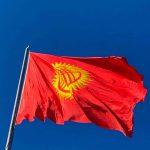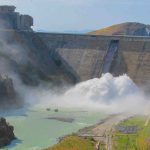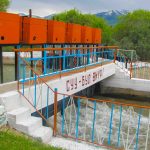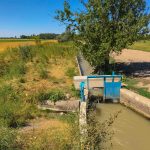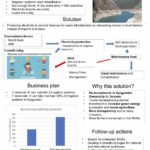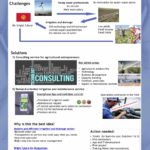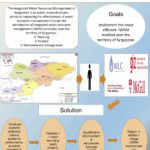
- This event has passed.
Wetskills-Kyrgyzstan 2018
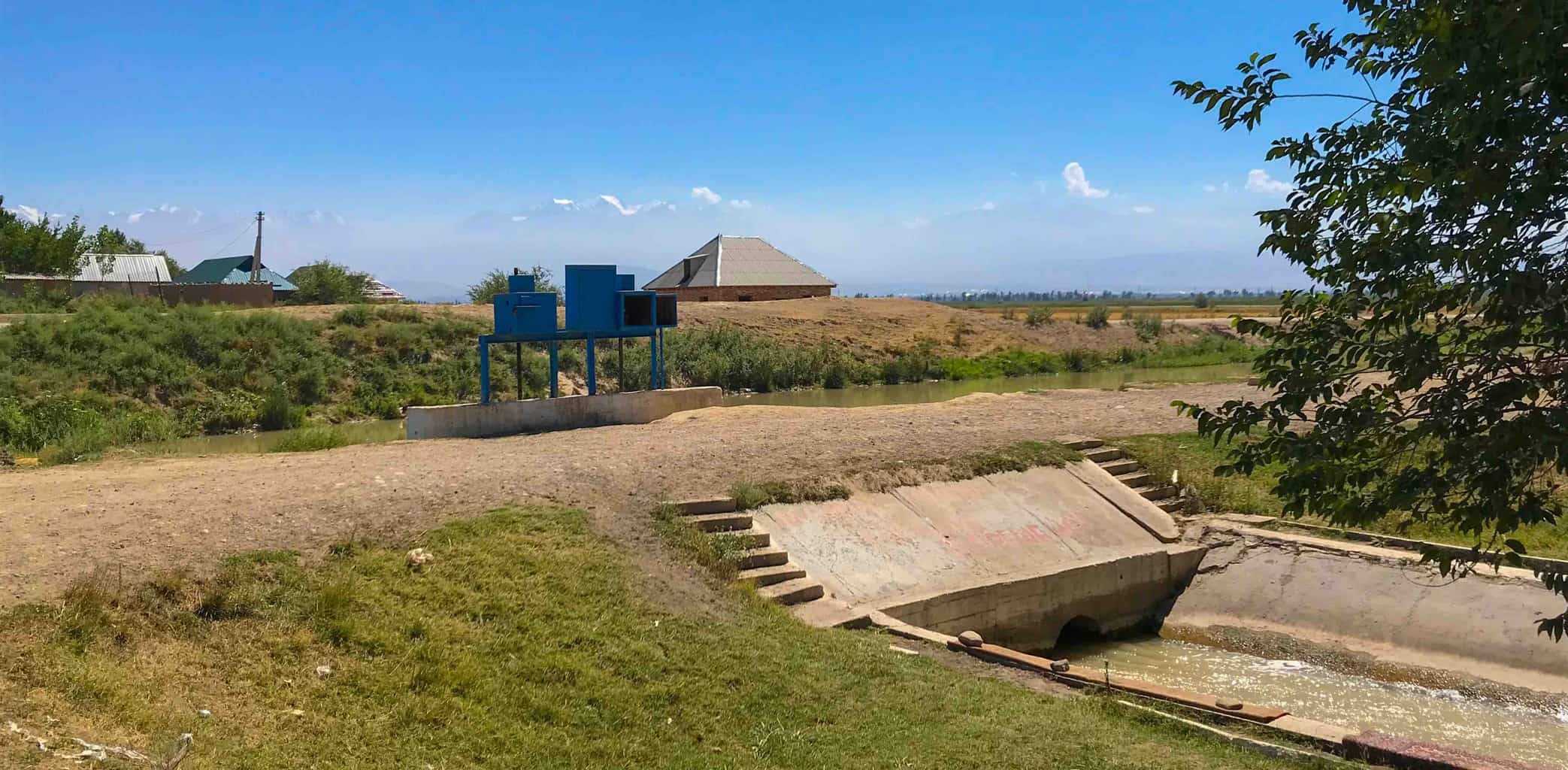

Wetskills tackles Water & Irrigation challenges in Kyrgyzstan
The World Bank funded project ‘National Water Resources Management Project (NWRMP)‘ in Kyrgyzstan requested Wetskills Foundation to set-up a Wetskills Water Challenge in Bishkek. This Wetskills was dedicated to the NWRMP project’s Central theme: ‘How to organize and finance the Water and Irrigation Sector in Kyrgyzstan in a resilient way for a sustainable future’. Its was not only about water, there was a focus on irrigation as well.
This first Central Asian event was organized in the green, post-Soviet and changing City of Bishkek, the capital of Kyrgyzstan and its inspiring surroundings. Field trips were organised to some main water and irrigation areas, meetings and discussions with people in the field and farmers and a visit to the beautiful Ala-Archa National Park with glaciers.
Wetskills Foundation worked together with four Kyrgyz universities in the field of Water and Irrigation: Kyrgyz National Agrarian University (KNAU, also local host of this Wetskills event), Kyrgyz-Russian Slavic University (KRSU), Kyrgyz State University of Construction, Transport and Architecture (KSUCTA) and American University of Central Asia (AUCA).
More information
For more information about participating in this event, Kyrgyz candidates can contact Mr. Bakyt Askaraliev (local host of the Kyrgyz National Agrarian University, abtajbakyt@gmail.com). International candidates can contact Mr. Johan Oost (johan.oost@wetskills.com)
Information

Wetskills in general

Bishkek and surroundings

Event Cases

Central theme: How to organize and finance the Water and Irrigation Sector in Kyrgyzstan in a resilient way for a sustainable future.
Case 1: Financing irrigation: subsidies, cost recovery or Public-Private-Partnership (PPP)
Kyrgyz irrigation water is cheap; it is fixed by the Government at a very low level. Farmers pay a small Irrigation Service Fee (ISF) for the irrigation water they are using. At this moment it is estimated that the ISF counts for about 20% of the current budget to manage, operate and maintain (MOM) the irrigation systems. The remaining part of the budget is provided by the Government. The total MOM budget is far from the required budget to do proper MOM and upgrading of the systems, leading to further deterioration of the condition of the irrigation systems. This process is already going on since about 1980, the last phase of the Soviet era. Most of the irrigation systems are currently in need of rehabilitation.
For the future choices have to be made concerning financing the irrigation sector. What is a reasonable amount of money a farmer can pay for his irrigation water? What are the required budgets for MOM? How much can the Government provide? Should the Government continue subsidizing the irrigation sector? Or should there be a focus on PPP for further MOM of the irrigation systems, like water tourism? Are there other options?
Poster
Case 2: Future Organization of the irrigation and drainage sector
The Kyrgyz irrigation sector is divided in a so called off-farm part (the main canal system) which is managed by the Department of Water Resources and Land Improvement (DWRLI) and the so called on-farm part which is managed by Water Users Associations (WUAs). The context in which these systems are managed is changing quickly, for instance technical possibilities are increasing, the climate is changing, etc. In the current situation technical improvements are taken up in a very limited way. Climate change is hardly used in plans for the future, the number of staff working in the DWRLI is decreasing and staffs are aging. More than 55% of the current staff is over 50 years old, a large number of pensioners keep on working. In the coming years many professionals in the DWRLI will retire and take with them all the practical knowledge. In addition, there is a limited amount of fresh graduates and young professionals who want to work in the irrigation sector.
What are the future technical and social challenges and possibilities to built up or keep a capable management of the irrigation sector? What are the skills required to meet these challenges and tap these possibilities? How should the DWRLI be staffed in 10-20 years from now and what is needed to realize this staffing (training, funds, recruiting, etc.)? How can the irrigation sector attract fresh graduates and energize young professional to stay in the irrigation sector? Can you suggest improvements for the WUAs?
Poster
Case 3: Water Resources, Water Use and Climate Change
Kyrgyzstan has abundant water resources. An amount of water is used in Kyrgyzstan, but also downstream countries like Kazakhstan and Uzbekistan depend on water flows from Kyrgyzstan. Due to climate change the hydrology of the rivers is going to change. Water demand is increasing. Many sectors depend on water: agriculture, drinking water, industrial use, ecological use, tourism, etc.
What are the main users of water, and how can these users contribute to good water resource management? What is a good water resources management in Kyrgyzstan from the point of for instance water quality, ecology, minimum requirements of water etc.?
What are the future challenges for development of the water sector, like climate change, water pollution, over-abstraction, decreased availability? What are the adaptation strategies that Kyrgyzstan could adopt to address these challenges?
Poster
Case 4: Organization of the water resources sector
Kyrgyzstan has abundant water resources. An amount of water is used in Kyrgyzstan, but also downstream countries like Kazakhstan and Uzbekistan depend on water flows from Kyrgyzstan. Due to climate change the hydrology of the rivers is going to change. Water demand is increasing. Many sectors depend on water: agriculture, drinking water, industrial use, ecological use, tourism, etc. But they hardly contribute financially to the water sector. Water resource management functions are divided over about 10 different agencies. River Basin Management organizations are hardly in existence, in case they exist they have very limited capacity, power and budgets. River basin planning is hardly practiced.
Which options are there to (re)structure the sector so that it is managed more efficiently and sustainable? How would you manage the water sector reform process, with staff and budgets shifts?
What are the skills required to meet the challenges of the water resources sector? How many people with which skills are needed to work in the sector? How should training and recruiting be organized? From which budgets of other financial sources should these activities should be funded?
How should the water resources sector in the future be financed, and how much would it costs? Subsidies, fees, taxes? What is further needed to build up a functioning water resources sector?
Poster
Case 5: Rehabilitation of schemes or new schemes?
Most of the irrigation schemes in Kyrgyzstan are in need of rehabilitation. Deferred maintenance in the past 30 years has led to this situation. In some schemes the required investment for rehabilitation and modernization is very high. Which level of investment is still justified for rehabilitation, should certain schemes be taken out of production?
An option to be considered for the future is to invest in new schemes. In such new schemes the system can be built up according to the current requirements. The existing systems were constructed in the Soviet plan economy, which is very different from the current requirement. In the Soviet period systems were built for large collective farms, nowadays farming units are much smaller, but current Water Users Associations are in many cases following the borders of former collective farms. How could investing in resilient irrigation schemes in Kyrgyzstan be organized to care for a sustainable future? Should be the focus on investing in rehabilitation of schemes, constructing new irrigation schemes, or find a middle way?
Poster
Event Partners


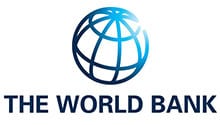


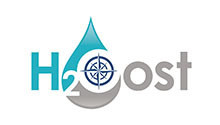
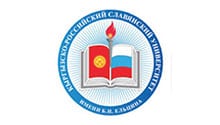
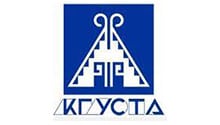
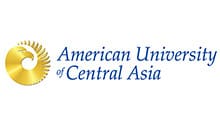

Previous Wetskills events



